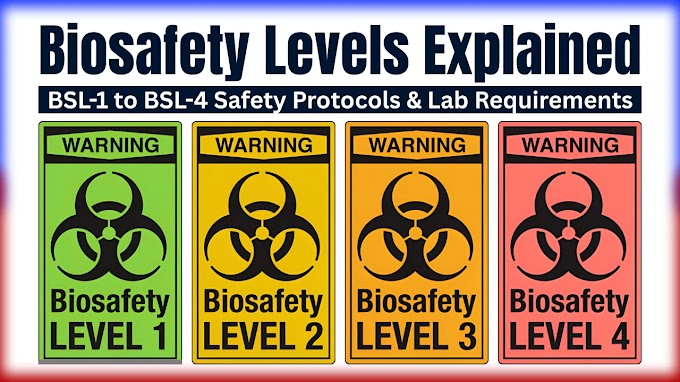Stressful Life
Adolescence may be one of the most enjoyable periods of one's life. However, it is also a period when numerous bodily changes must be accepted, as well as new obligations. These adjustments can be quite stressful. Teenagers may be unsure how to deal with these new issues and sensations. They may get enraged, irritated, worried, confused, or sad as a result of these pressures.
A sense of melancholy, worthlessness, helplessness, or loneliness is referred to as depression. It's known as the blues in its milder versions. Many different stresses can lead to depression. A loved one's death, sickness, accident, ageing, loneliness, and a change in body chemistry are just a few stresses that can lead to depression.
Most people experience feelings of sadness, depression, or isolation from time to time. These emotions are generally fleeting. Some people, for example, are sad on weekends. But, in most cases, this emotion only lasts until they find something else to do.
Stress and Teenage Sadlife
Depressed feelings can sometimes persist for a long period. When sadness lasts for a long time or when a lot of things go wrong at once, some teens may feel as if nothing will ever be the same again. They may even have suicidal ideas. I've made a complete mess of my life. It appears that the
The harder I strive, the more mistakes I make. I can't seem to find a place where I belong. Kris and I had recently broken up. I think I'm not as appealing as the other men. I'm never going to be able to maintain a lady buddy. My grades have also fallen. Mom and Dad place a high value on academic achievement. I don't think I'm the perfect son in their eyes. I'm feeling lonely and out of place. Nothing in my life appears to be worth the effort right now.
The youngster, who has recently broken up with his female friend and is experiencing declining grades, is contemplating sadlife. Self harming is not uncommon among teenagers. What's new is the sharp rise in the number of adolescent harm. In the last 30 years, teen harm has more than doubled, and it is occurring at a younger age. What is causing this? The issue is complicated, and there appears to be more than one reason.
The Pressures of Growing Up The stress of taking on more adult roles—growing up—can lead to suicidal thoughts in many teens. There are tremendous social demands to seem attractive and acceptable among friends. Having a reliable male or girl friend may be quite important. Managing the development or dissolution of such a friendship can be difficult.
The pressure to excel in school, athletics, or a part-time work increases as well. Teenagers may also be subjected to physical stressors that they are unaware of. Their being cross, weary, or furious might be due to changes in body chemistry. They may have a proclivity for overreacting.
Physical changes might also result in noticeable changes in appearance. Trying to manage all of these changes at the same time may be quite difficult.
Loss-related stress It's possible that adolescence is a time when you learn to accept loss. The teen kid in the storey was upset because he had lost a lady companion. He had also lost faith in his ability to succeed in school. The death of a close relative or the divorce of parents are examples of other types of loss. Some teens feel bereft after moving because they miss their former pals. It is critical for teenagers to discuss their thoughts with a friend or a parent when they are saddened by a death.
Stress to succeed In high school, most teens will try out a variety of new roles. They could audition for a school play, for example. They may, however, discover that some pupils are greater learners than they are. Although it is natural to compare oneself to others, it is vital to realise that people flourish in various ways. If they fail in one area, it's possible that they'll succeed in another.
Trying to achieve good grades or pass college admission exams may be quite stressful. For kids who choose to attend college, the pressure to achieve will undoubtedly rise.
Helping Yourself and Others
When someone commits selfharm, those closest to the sufferer are sometimes caught off guard. They ponder, "Why didn't he say anything?" Victims of selfharm generally leave some clues within three months after their death in the majority of cases. Eighty percent of teens who attempt selfharm do so after discussing it with their parents. However, the clues are frequently overlooked. Figure 6-5 depicts some of the possibleself harm warning signals.
|
Figure 6-4 Self Harmwarning signals Self Harm is being discussed. Writing
in journals, poetry, or essays on Self Harm or thoughts of hopelessness. Loss
of interest in friends, school, hobbies, preferred sports, one's physical
attractiveness, or eating. Favorite
items are being given away. Getting
rid of all social inhibitions Behaving emotionally by laughing, weeping, or
acting violent outbursts of rage for no apparent reason Suddenly becoming
accident prone. Increased
drug or alcohol usage Possessing pills or weapons to commit Harm Depressed
for a long time following the death of a loved one. |
Many of the teens who ponder harm are loners who struggle to make or retain friends. They don't have friends, therefore they don't have the social support they need to deal with their difficulties. Such teens may have a negative self-perception. They may have a tendency to generalise an issue. Overgeneralization is when a single occurrence is used to infer a wide conclusion. In the narrative, for example, the guy had lost one of his lady friends. "I'll never be able to keep any lady pals," he concluded afterwards. He'd gone too far with his generalisations.
People who are contemplating harm are frequently harsh on themselves. They frequently feel guilty or unworthy. Failure to succeed in education. Skipping courses or having trouble concentrating validates their negative self-perceptions. People who are harsh on themselves are more likely to personalise a situation. Taking a statement or an incident too seriously is known as personalization. For example, a teen may feel responsible for his family's financial difficulties. He may feel guilty for not being able to do more or that he is a burden since he need clothing and food.
He may feel guilty for not being able to do more or that he is a burden since he need clothing and food. He's putting himself on a pedestal and making himself feel responsible. People may get sad if they begin to experience unpleasant sensations like these. They may consider committing harm.
Teenagers may find that talking about their problems is beneficial. If their sadness isn't too severe, a sympathetic ear may be able to help them reconsider their worries. It's a good idea to speak with your family doctor. A physical issue can sometimes lead to feelings of despair.
To assist prospective harm victims, several municipalities offer harm hotlines or preventive and crisis centres. These phone numbers are frequently placed at the top of the phone book. Even though some small communities lack harm crisis facilities, there is generally always someone willing to listen and offer assistance. A parent, teacher, clergy person, family doctor, or other adult who cares will be present.
|
Figure 6-5 Talking
or listening to a friend in crisis can be the right help in preventing a
tragedy. Below are other tips on how to handle a harm crisis. Take
your friend's situation seriously. Get aid right away, but don't abandon your
companion. If
you're on the phone, keep talking until you get someone else to contact the
cops or the fire department. Do
not deny that your friend is suffering from a problem. Pay close attention to
your friend. Avoid phrases like "Don't worry," "There's
nothing to worry about," and "Your situation isn't actually that
severe." Inquire
about a specific problem. After
that, talk to someone about the situation to ease any anger, anxiety,
loneliness, or guilt you may be feeling. Request
that your school's guidance counsellor organise a discussion group to assist
you and others in dealing with your emotions. |
Review of lesson
The pressures of adolescence can produce significant changes in behaviour and attitude. It is typical to feel alone and depressed throughout these years. Long durations of despair or talking about death, on the other hand, might indicate a harm attempt.








